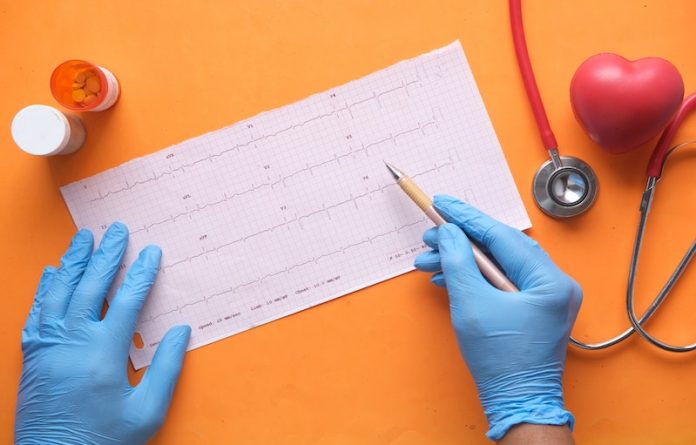
Heart inflammation is your body’s natural reaction to an infection or injury to the heart.
To protect your body, your white blood cells send chemicals that increase blood flow to the affected area, which can lead to redness, swelling, or pain.
Inflammation can affect the lining of your heart or valves, the heart muscle, or the tissue surrounding the heart.
Inflammation in the heart can lead to serious health problems, including an irregular heartbeat (also called arrhythmia), heart failure, and coronary heart disease.
Infections
Viral, bacterial, fungal, and parasitic infections can cause heart inflammation.
Viral infections are the most common cause of myocarditis and pericarditis.
These may include SARS-CoV-2 (the virus that causes COVID-19), adenovirus, coxsackievirus (including hand, foot, and mouth disease), herpes virus, and influenza (flu) virus and parvovirus B19 (which causes an infection common in children known as fifth disease).
Viruses may infect the heart muscle tissue, causing the body’s immune system to react.
Bacteria are the most common cause of endocarditis, which occurs when bacteria and blood cells form clumps, typically on the heart valves.
\In most developed countries Staphylococcus aureus (staph infection) is the most common type of bacteria that causes endocarditis. Bacteria can enter the blood in many ways, including during a medical or dental procedure or through intravenous drug use.
Streptococcus (strep) bacteria can also cause endocarditis, but this is more common in less developed countries. Pericarditis caused by bacteria is not common in the United States.
Fungi are rare causes of myocarditis and pericarditis. Most commonly, fungal endocarditis is caused by either Candida (yeast) or Aspergillus (mold).
These infections are more common in people who have weakened immune systems from conditions such as HIV, cancer, or diabetes.
Parasites are another infectious cause of myocarditis, such as the parasite that causes Chagas disease, a serious health problem in Latin America.
The parasite can specifically affect the heart at the time of infection and may lead to the need for a pacemaker.
Autoimmune diseases
Autoimmune diseases such as rheumatoid arthritis and lupus may cause pericarditis or myocarditis. They can also damage the heart valves, which can lead to endocarditis.
Medicines
Medicines can cause side effects that may lead to myocarditis, pericarditis, or both. These include:
- Antibiotics, such as penicillin
- Antidepressants, such as tricyclic antidepressants
- Benzodiazepines, known as tranquilizers, such as lorazepam and diazepam
- Diuretics, which are medicines, such as furosemide and hydrochlorothiazide, that help your body get rid of extra fluid
- Heart medicines, such as amiodarone, hydralazine, methyldopa, and procainamide
- Psychiatric medicines, such as clozapine and lithium
- Seizure medicines, such as phenytoin
- Vaccines, which may cause allergic reactions leading to myocarditis, although this is rare
- Weight-loss medicines, such as phentermine-fenfluramine (phen-fen)
If you care about heart health, please read studies about drug combo that may reduce your risks of heart attack and stroke and this diet could prevent or even reverse heart failure.
For more information about heart health, please see recent studies about high blood pressure drugs that may increase risk of this heart disease, and results showing what you need to know about cannabis and heart attack.



